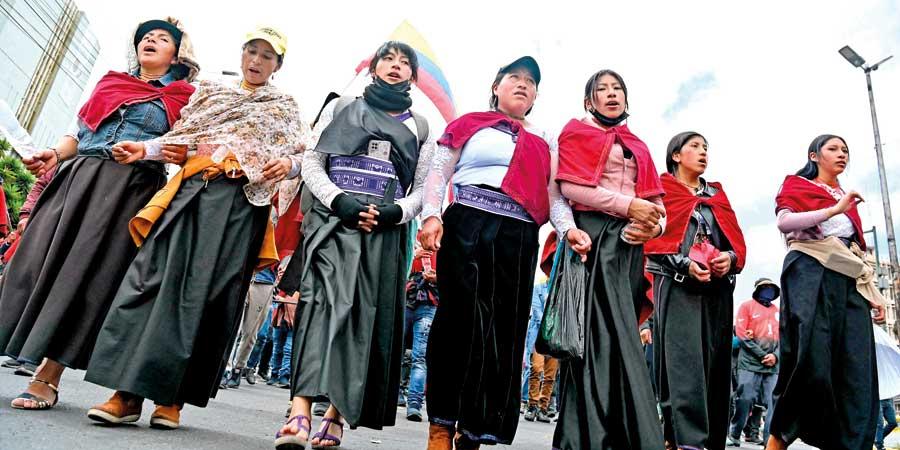Japan-US-South Korean Leadership Summit: Hoping To Repair Relationships and Increase Deterrence
(Japan) on 1 July 2022
by (link to original)
The leaders of the three countries met in Madrid, where they recognized that North Korea’s development of nuclear missiles poses a grave threat to the international community, and mutually promoted a course of cooperation on national security for all three.
This is the first time in roughly five years that the leaders of the U.S., South Korea and Japan have met at a summit. There were many international conferences in the past, but they were since put on hold as South Korea’s former administration strengthened its anti-Japanese stance. Now, talks have resumed under the leadership of President Joe Biden, who seeks to improve the relationship between Japan and South Korea.
North Korea has conducted 17 nuclear missile launches this year, including missiles with abnormal trajectories, and hypersonic missiles, all of which are difficult to shoot down with current missile defense systems.
How should we deal with this increasing threat? Defense leaders in all three countries need to reach a mutual understanding about existing defense and counterattack capabilities.
For six years, none of the three countries, which all use the Aegis Combat System, have conducted any missile detection or tracking exercises. Such training should resume along with improvement to rapid response capabilities.
The ability to secure a harmonious alliance among the U.S., Japan and South Korea will likely be linked to effective use of the General Security of Military Information Agreement, which established joint access to confidential information between Japan and South Korea and a system for exchanging information.
China has ignored the U.N. Security Council’s resolution to impose sanctions on North Korea, and has been admitting North Korean immigrant workers. China has also participated in smuggling activities.
The fact that China, a permanent member of the U.N. Security Council, is finding loopholes to sanction laws is inexcusable. The U.S., Japan and South Korea must collectively work to ensure that China complies with sanctions they agreed to.
Before the trilateral leadership summit, Japanese Prime Minister Fumio Kishida and South Korean President Yoon Suk-yeol, who took office in May, spoke briefly. Kishida said he hoped Yoon would make every effort to restore the strained bilateral relationship to a healthy one,” while Yoon added that South Korea feels it should urgently resolve pending problems.
In order to truly improve the Japan-South Korea relationship, it is essential for South Korea to find an appropriate response to the issue of forced laborers from the Korean Peninsula and the issue of comfort women that comports with international law.

